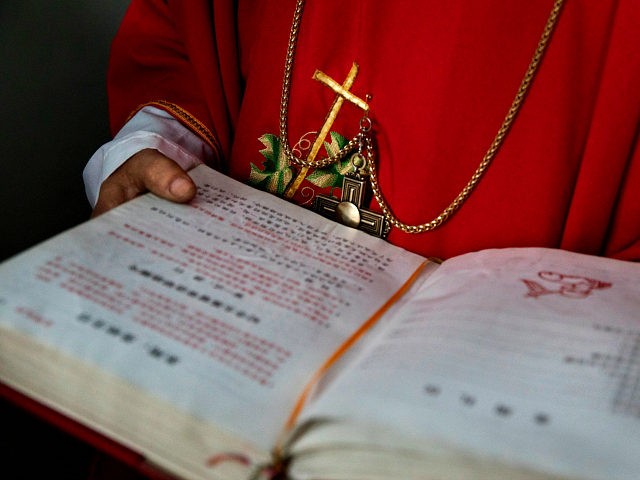ROME — The 2018 agreement between China and the Vatican on the naming of bishops has not produced the unity for which it was intended, declares a new report, since China’s determination to create a national catholic church independent from Rome has not changed.
Writing from China for AsiaNews, the official press agency of the Pontifical Institute for Foreign Missions, Duo Mu states in an article Tuesday that the Chinese Communist Party has not wavered in its stated policy of only accepting an “independent” Church completely subject to the party.
A lay Catholic from Hebei, Duo Mu notes that following the opening of China in the 1980s, the Church has shown an ongoing desire to enter into dialogue with Chinese authorities, under the pontificates of St. John Paul II, Benedict XVI, and Pope Francis, something that Chinese Catholics have supported.
“I believe that the whole Chinese Church, the one recognized and the one not recognized by the authorities, is in favor of dialogue between the Vatican and the Chinese government,” he writes. “As we all know, problems cannot be solved without dialogue, allowing mutual trust between the Vatican and the Chinese authorities to grow.”
The goodwill on the Vatican’s part eventually led to the 2018 provisional Sino-Vatican agreement on the appointment of bishops, in which the Vatican ceded an unspecified amount of authority to the Chinese communist party for the naming of Catholic bishops.
Yet despite this goodwill, Beijing’s stance toward the Catholic Church has not softened, he writes.
With the proclamation of the Chinese Republic in 1949, Duo Mu notes, “the Chinese government adopted harsh policies to suppress religion, from the Socialist Education Movement to the Cultural Revolution.”
“At the same time, through the United Front strategies, the authorities sought to establish a ‘Chinese Catholicism’ in China independent of the pope, publicly denying the pontiff’s primacy,” he reflects.
“During the rite of consecration bishops and priests, candidates had to swear to separate from the Pope and follow the leaders of the Communist Party, while in booklets such as the Liturgy of the Hours, the Missal and the Holy Bible, all the sentences and doctrines dictated by the Pope were canceled, as were prayers for the Pope,” he notes.
Toward the end of the 1980s the situation improved somewhat, at least on its face, Duo Mu states. “On the face of it, the politics of religion have undergone renewal, but in truth the attitude that the government has towards religion, and the policies adopted, have remained almost unchanged.”
Following the Sino-Vatican Agreement, the government has clearly communicated: “The Sino-Vatican Agreement has been signed, but religion policies do not change, everything remains as before.”
As far as Catholicism is concerned, the basic and central policy of “creating an independent Church and naming bishops freely and independently” has never changed, and the government has not changed its mind about founding an independent Church, he declares.
The reason that the Chinese Catholic Church still exists, Duo Mu writes, is because Chinese Catholics refused to bow to the communist party and stayed faithful to Rome despite persecution.
“The independent Church separated from the Pope is not the Catholic Church; the bishops without the Pope’s appointment are not even the pastors of the Church,” he said. “What is false cannot be disguised as truth, despite having worked for 60 years with the help of the government to look more and more like Catholicism.”

COMMENTS
Please let us know if you're having issues with commenting.